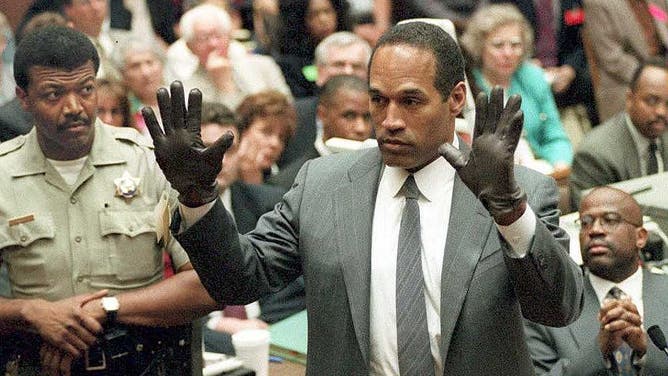Stephen A. Smith Gives His Thoughts On OJ: 'I Believe He Was Guilty'
OJ Simpson's death has led to everyone giving their takes on what has to be one of the most complicated legacies in sports history, and that includes ESPN's Stephen A. Smith.
Sure, OJ was a Heisman winner, was one of the best running backs ever, and appeared in The Naked Gun.
But on the other hand, there was that time he was acquitted —but found liable in a civil trial — for the double murder of his wife and her friend, and then the other time he was convicted of armed robbery and kidnapping.
You can see the complication…
So, on Thursday's edition of First Take, Smith gave his take on Simpson's legacy.
"There’s no balance when it comes to that," Smith said, per Mediaite. "When you think about O.J. Simpson, you may remember that he’s a football player; but what you remember most is the murders of Nicole Brown Simpson and Ronald (Goldman) and you think, obviously, of him. There’s no way around that."
There's a generational angle to that too. I was born just after the year after the murders. Having not grown up with OJ on the field, people my age only ever knew of him as an accused murderer first, Hall of Fame football player second.
READ: A LOOK BACK AT THE LATE, GREAT NORM MACDONALD'S HISTORY OF O.J. SIMPSON JOKES
Of course, the outcome of that trial that shifted Simpson's legacy is polarizing. Some are adamant that he was guilty, while others — despite a mountain of evidence against him — believe he was innocent.

Stephen A. Smith explained why he thinks OJ Simpson was guilty of killing his wife Nicole Brown Simpson and her friend, Ron Goldman. (Photo credit should read VINCE BUCCI/AFP via Getty Images)
Smith, falls into the former camp based on what was broadcast during the trial, and despite the prosecution's notorious mishandling of the case.
"Most people believe that he committed those murders," he said. "I know that if I was on the jury, he would’ve been under the damn jail. I know that much.
"I believe he was guilty, but I don’t know. I’m talking about based on the evidence that was placed before us during the trial overseen by Judge Lance Ito. This is what we saw on national television, and by most accounts, you found yourself believing he was guilty as hell."